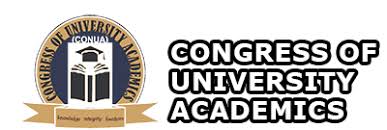The Congress of University Academics (CONUA) has expressed concern over the recently released 2025 Unified Tertiary Matriculation Examination (UTME) results, describing them as indicative of a deepening crisis in Nigeria’s education system.
In a statement issued in Abuja on Wednesday, CONUA President, Niyi Sunmonu, said the performance of candidates revealed systemic deficiencies that demand immediate attention.
Correspondent reports that the Joint Admissions and Matriculation Board (JAMB) had announced that out of over 1.96 million candidates who sat for the examination, only 0.79 per cent (12,414 candidates) scored 300 and above. About 21 per cent (334,560 candidates) scored between 200 and 249, while over 74 per cent (more than 1.5 million) scored below 200. Additionally, more than 26 per cent of the candidates failed to score up to 140.
Sunmonu highlighted several issues behind the poor performance, including weaknesses in curriculum delivery, inadequate teaching quality, insufficient infrastructure, and a lack of student familiarity with computer-based testing.
“The limited number of high performers and the overwhelming concentration of candidates in the lower score brackets indicate widespread systemic failures,” he stated. “With this development, universities may struggle to maintain academic standards with fewer qualified entrants.”
He further noted that students from underserved regions, who are already disadvantaged, would now face even greater obstacles to accessing tertiary education.
“Most critically, the country risks further depletion of its human capital base,” he warned.
Sunmonu urged key stakeholders—including the Federal Ministry of Education, state governments, and regulatory bodies—to urgently reform the curriculum to reflect 21st-century competencies. He also called for increased investment in teacher training, the implementation of accountability systems, and expanded access to learning resources and infrastructure across all regions.
He recommended strengthening remedial education programmes, such as pre-degree courses and the Joint Universities Preliminary Examinations Board (JUPEB), to support underprepared but promising students.
Additionally, Sunmonu advocated for greater autonomy in university admissions, allowing institutions to design flexible interventions for students with academic potential who may not have met the traditional cut-off marks.
“While this year’s UTME results are worrying, they also serve as an opportunity to realign our priorities and reinforce our collective commitment to rebuilding Nigeria’s education system from the foundation,” he said.
(NAN)


